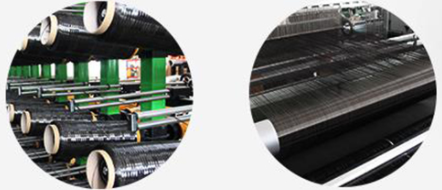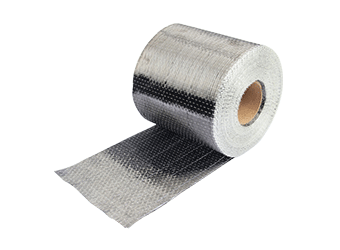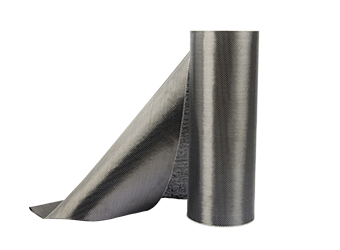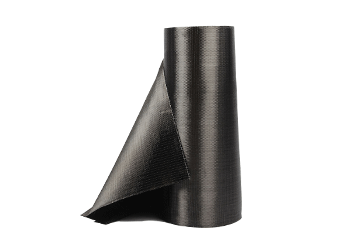Solutions
Horse Construction offers full range of structural strengthening materials with technical supports, documentation supports, products supports, project supports.
For Unidirectional Carbon Fiber Fabric
Friends in the structural reinforcement circle know that carbon fabric has been commonly used in structural reinforcement and repair in construction, bridges, pipelines, water conservancy and hydropower, airports and other fields, and its quality is also the focus of reinforcement awareness.
From the carbon fiber precursor to the finished product, weaving and testing are required to complete the process. Among them, carbon fiber weaving is an indispensable process from raw silk to intermediate products, which requires very high mechanical processing capabilities and process flow.
At present, there are mainly two types of carbon fabric woven on the market, one is a traditional domestic carbon fabric loom, and the other is an imported intelligent carbon fiber loom. Then, what is the difference between the carbon fabric woven by these two machines? What effect does it have on the effect of structural reinforcement?
Flatness comparison of formed carbon fabric

The carbon fabric woven by the imported intelligent carbon fiber weaving machine has good uniformity and flatness. At first glance, the surface is flat and smooth, the carbon filaments are straight, and it is easy to penetrate and stick during construction, and the workers' response is very good. However, the carbon fabric woven by traditional domestic carbon fabric looms does not control the flatness as well as imported looms. The surface of the woven carbon fabric is rough, the tow is uneven, the weft is uneven, and it is not easy to paste construction. We know that the flatness of the carbon fiber fabric surface largely determines whether the carbon fabric is easy to penetrate and stick, and the carbon fabric sticks firmly to exert its performance, so this is very important.
Comparison of warp and weft tension control

Because the imported carbon fabric weaving machine uses a full computer system to accurately control warp and weft tension, point-to-point positive weft insertion, which makes the carbon filaments tight and the tension is constant and evenly distributed, so it can exert the strength of each carbon filament. However, the traditional domestic loom equipment is outdated, and the tension of the warp and weft is controlled by the machine, which causes the carbon wire to be tight in some places, the carbon wire is loose in some places, the tension is uneven, the carbon fabric is deformed and damaged, and the strength is damaged.
Strength comparison of formed carbon fabric

The imported carbon fabric weaving machine has no damage to the carbon wire, and the woven carbon fabric has no broken wires, threading, roughness, etc., and no damage to the strength of the formed carbon fabric. Common domestic knitting machines frequently break and fuzz during weaving, so the strength of the formed carbon fabric will of course be affected.
Carbon fabric production efficiency comparison

The cost of the imported carbon fabric weaving machine is about 50 times that of the domestic equipment, but the production efficiency is 3 times that of the domestic equipment. According to Horse Construction, the annual output of high-quality carbon fiber fabric is 5 million square meters, and the regular inventory is 150,000 square meters/day, which can guarantee timely supply of large-scale projects around the clock. However, the annual output of domestic traditional looms is small, and the storage capacity is small, which cannot meet the requirements of large projects.
Carbon fabric wide customization comparison
Imported advanced equipment of carbon fabric weaving machine not only has a large output, but also can customize carbon fiber fabric of different widths, and the customized width can reach 2.3 meters! Ensure stable quality during the weaving process. The width of carbon fiber fabric on traditional domestic looms can only reach 1.2 meters.
You can find anything here you are in need of, have a trust trying on these products, you will find the big difference after that.

High strength, unidirectional carbon fiber wrap pre-saturated to form a carbon fiber reinforced polymer (CFRP) wrap used to strengthen structural concrete elements.

High strength, unidirectional carbon fiber fabric pre-saturated to form a carbon fiber reinforced polymer (CFRP) fabric used to strengthen structural concrete elements.

High strength, unidirectional carbon fiber sheet pre-saturated to form a carbon fiber reinforced polymer (CFRP) sheet used to strengthen structural concrete elements.